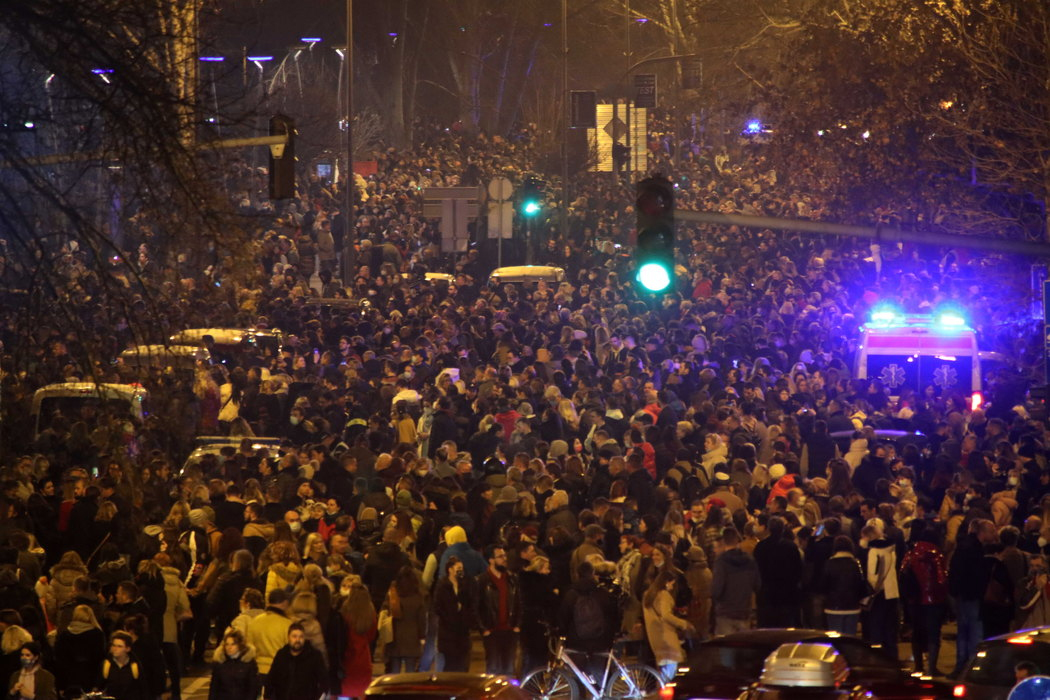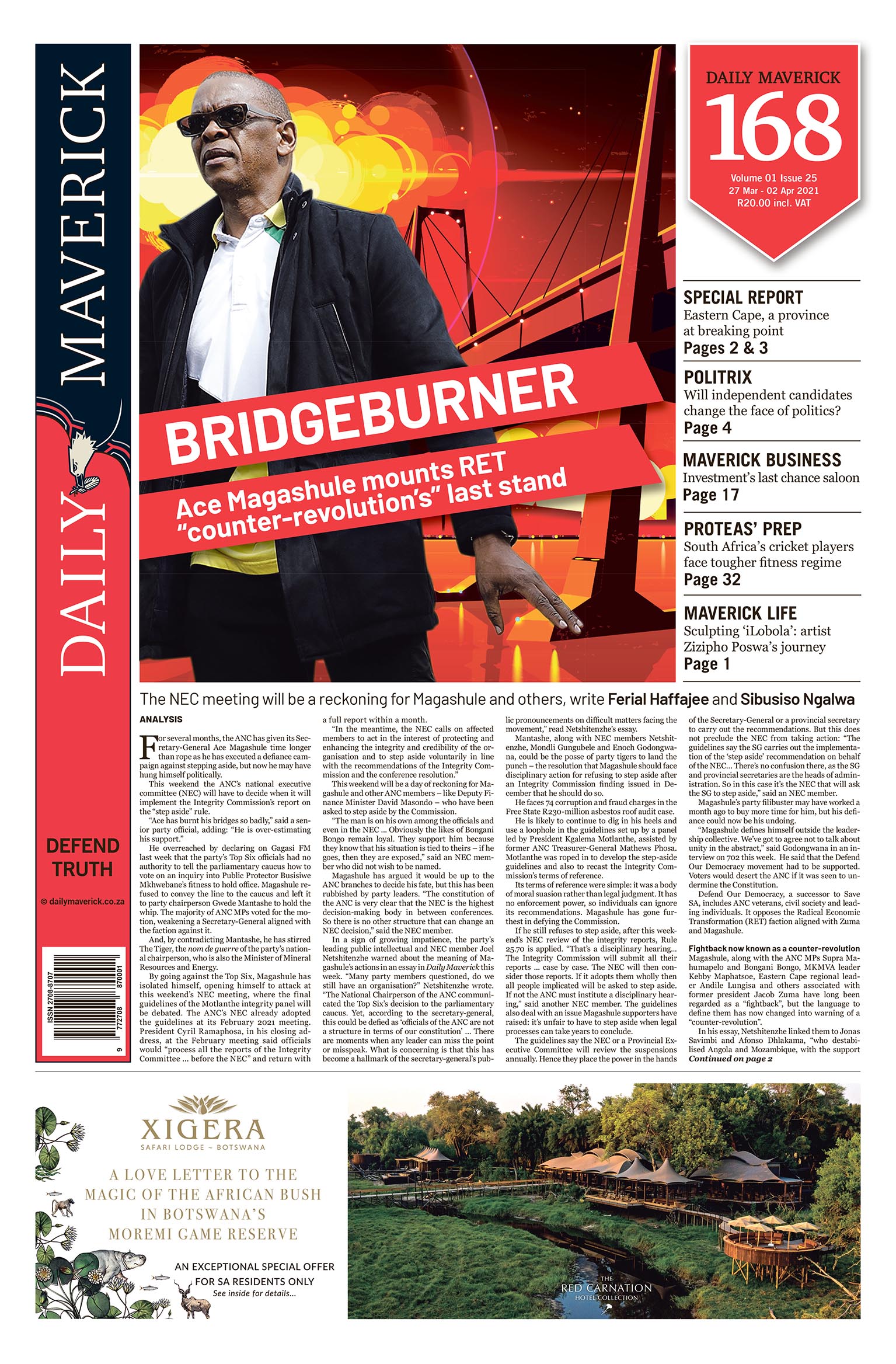First published in the Daily Maverick 168 weekly newspaper.
It is always horrible to lose people dear to you, who made a great impact on your life and legacy. Out of a torrent of people who have departed in recent years, and not only during this awful pandemic, a few have hurt me deeply and personally.
Jack Koolen was a human rights defender, idealist and motivator of the highest calibre, who stood by Daily Maverick, and me, when the nights were darkest and dawns failed to arrive. I think of his wisdom and kindness a lot ever since he left, too young and always sorely missed.
Then Deon Schoeman left. He was a motoring journalist extraordinaire and the most wonderful friend one could think of, a man whose personal goodness and deep decency were north of my own compass. Almost two years have passed since his way-too-early departure, and I still expect to meet him the next day, tomorrow, for coffee and a dose of hope for humanity.
I remember feeling great sadness when I heard about the suicide of Anthony Bourdain, who at the peak of his creative gift decided life is just too unbearable. I didn’t even watch most of his work, a terrible failure which I hope to correct, one day soon. But still, there was something so viscerally unjust in this man’s trajectory of life that was cut so suddenly, laden with an unbearable burden of depression.
And then … And then, there was Djordje Balašević. The man many called Yugoslavia’s Bob Dylan, the man so talented with words and metaphors and guitar that the songs he brought to the world felt to many like a gift straight from worlds and entities vastly superior to us.
Balašević was the chronicler of a country that was about to fall apart in a series of still incomprehensible acts of violence and stupidity that happened in the 1990s, and yet so many of his songs were beautiful and warm and a joy to hear and behold. He sang about his maverick life, and his outsider’s take on the world that he could not be part of and yet he understood better than anyone else.
The Serbian (Serbo-Croatian, Yugoslavian) language is a terrible thing to hear when I speak it – trust me – but when Balašević was even just talking, this same language would transform into a most delightful collection of vowels that gave consonants space to last and sound … beautiful.
He was a true Yugoslavian, from Novi Sad, a melting pot of a city on the banks of the Danube. Like me, and so many others, he was hit hard by the demise of Yugoslavia. He sang, before it all started, We Can’t Have War, and millions sang with him. It was not enough. Our trajectory was already drawn, and all we needed to do was drive it. The war was, like a poisonous gas, already in the air; there was nothing we could do, except watch what we built disappear into the ether, like it was a mistake of history, or it never existed.
Except it did exist, and it was not a mistake of history and Balašević was this beautiful dream’s bard. During the war years, he was one of the main voices against madness, stupidity and perfidy. He was the first Serbian musician to hold a concert in the long-tortured post-war Sarajevo, the very city that was so long a symbol of Yugoslavian unity.
And then, just a few weeks ago, Covid-19 refused to accept his immortality.
The people of all the former Yugoslavian republics went on to their streets and town squares and river banks, and started singing, and did so for days. Huddled around millions of candles, old and young, idealists and pragmatists, people of all religions and nationalities brought back his lyrics, and his dreams. Flags went down to half-mast. Men were not ashamed to cry.
He was that beloved.

Citizens of Novi Sad after learning of Balasevic’s death. 20 February 2021 (Jaroslav Pap for Radio-Televizija Vojvodone)
And yet there was something else in that frozen air that was augmenting this outpouring of sadness. It was this understanding that it was not only Balašević who died that cold February evening. That day, to so many of us, it felt that the Yugoslavian Dream finally died. Yes, the political entity died many times and through many rushed acts of the 1990s and 2000s, but so many of us held on to the Dream. With Balašević leaving, we knew deep inside that the Dream had left too, for the last time.
As someone said in Serbia, how many times can a country die? It is a finite number, it turns out.
How does it feel when the country, and the dream, of your birth die? It is unbearable sometimes.
Watch: An excellent summary (in English) of what Balasevic meant to the people of Yugoslavia:
And that is something I would like to talk to you about, dear South Africa, right now.
This home of mine for so many years is a country that was dying for centuries before it even had a chance to live. With the arrival of democracy, it received a current of life and hope that rivalled the dream of all southern Slavs living together.
But South Africa has died so many times since.
When the proponents of the old regime kept refusing to accept that something so fundamentally and disturbingly bad was actually wrong, our reservoirs of goodwill get poisoned.
When the miners in Marikana were massacred and their ravaged community brutalised for months with a viciousness rarely seen before, a big part of the South African spirit of togetherness died.
When Andries Tatane was killed in front of his community while protesting against the non-delivery of water, a large chunk of our ideals was carved off.
When Anene Booysen, and a thousand more women and children, were brutalised across the land, the dream of our common humanity waned.
When Jacob Zuma grasped power with his cold hands and, armed with an army of little and big parasitic helpers, proceeded to drain the country’s reserves of money, talent and goodwill … for ten years we lurched towards the abyss, together.
There are just too many moments in time and space when the country of South Africa has suffered, losing a cat-like list of lives. As the pandemic is extending its stay like a very unwanted guest, we are now at the edge of everything: our energy, patience, staying power, conviction, commitment to what is good and righteous. It is a moment fraught with peril.
And yet, a great part of our political sphere is now so deeply enmeshed in the existential fight for power (and for most, the power to pillage), that they forget South Africa in not an indestructible toy. No country in the world is – any history book can teach that.
As you read this, many of Zuma and his merry band’s stormtroopers are doing their utmost best to make South Africa ungovernable and stir upheaval so vast that it could, in theory, enable their return to power.
What they do not perhaps understand, and certainly do not care about, is that a return to the State Capture days would render this country a failed state. Zuma(s), Ace Magashule, Julius Malema and their cohorts are but the thinnest of layers of South African people, and yet they wreaked untold damage. After so many years, our infrastructure is in ruins, people are uncared for, big tracts of our land are free of any government services. The coffers are bare, for all to see.
They mismanaged, shouted, screamed and conned this country into an existential crisis that has infected us at every level.
South Africa is a bruised and battered nation on the brink, struggling for air after so many years of choking. The people are hungry, and people are angry. All you need to do is look.
It will take a miracle, a lot of goodwill and boundless trust to get us out of this mess.
When you see all of this, I just need to ask you that question, again:
How many times can a country die?
The response is, again, a depressingly finite number of times. Do we need to lose a country first in order to understand how much we loved it?
South Africa, we can’t let it happen. DM168
This story first appeared in our weekly Daily Maverick 168 newspaper which is available for free to Pick n Pay Smart Shoppers at these Pick n Pay stores.




















 Become an Insider
Become an Insider
An excellent article, Branko. Let us hope that good will prevail over evil and that South Africa will become a true rainbow nation.
I agree with you Paddy. One of Branco’s best, and there were many good ones. But this is the first one I’ve read where the emotions simply runneth over. In a way it reminded me of the brilliant poem of Amanda Gorman at President Biden’s inauguration.
Beatiful piece from the heart. Thank you, Branco.
Destruction and despair …will inevitably be followed by resurrection and renewal – it is a law of the universe. Human existence and has to constantly contend with these competing extremes. Sometimes it may even seem unlikely. Madiba understood this clearly … as have other wise philosophers.
Incredible wise words
I sailed with Yugosalav, Polish and Ukrainian crews on big ships world wide when the wars were trashing their country. Horrendous.
Hi Kanu – destruction and despair will be followed by renewal etc. Why go through the pain, misery, grinding poverty, death and devastation. Look at the tortured and devastated land that is Zimbabwe, Venezuela etc. Pure basket cases! It’s been going on for decades and with more to come.
And yet, as I walk through a mall where I am the only old(ish) bearded white man in khaki shorts, sandals and short socks in a sea of black faces, I feel no aggravation and sense only goodwill, tempered perhaps with a feeling of shared wry amusement at ourselves.
“What’s up, Pollyanna?” I ask…
What a beautiful tribute Branko
Your article is one of your best ever Branko – simultaneously uplifting and devastating. We need a strong leader to harness the abundant goodwill and energy latent in so many South Africans.
I arrived in SA in 2006, with my SA wife of course – worried about the violence which seems to be inherent in SA at many, many levels but bouyed up by the Mandela “rainbow nation” dream. I am not yet despairing but my goodness, what a ride we have been subjected to. Great article Brank – thank you.
Dear Branko. I listened to Djordje Balasevic singing Prica O Sa Vasi Ladackom, who I had never heard before, as I read this sad memorial. It made it even sadder. God help us.